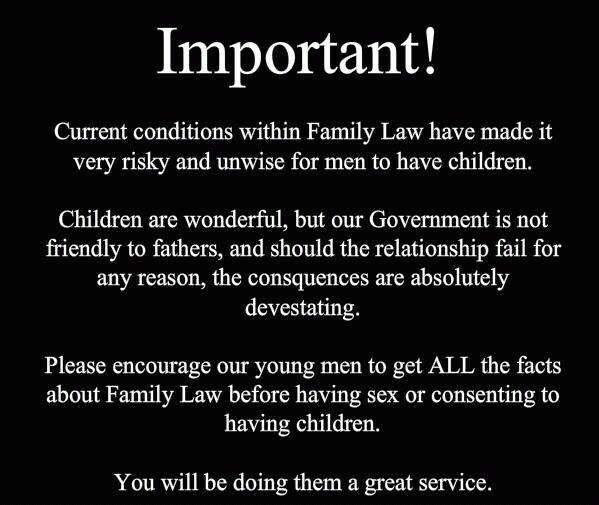The Supreme Court’s Parental Rights Doctrine
Our nation has consistently maintained that parents possess a fundamental right to raise their children as they see fit.
This belief has been upheld by our judiciary in numerous Supreme Court cases that reflect the American people’s longstanding commitment to parental rights. The excerpts below are drawn from key Supreme Court cases protecting the right of parents to raise their children. It is critical that we place the current Supreme Court doctrine on parental rights into the explicit text of the United States Constitution in order to preserve the vital child-parent relationship.The principles below are referred to as the Parental Rights Doctrine.
Case index:
· Meyer v. State of Nebraska, 262 U.S. 390 (1923)
· Pierce v. Society of Sisters, 268 U.S. 510 (1925)
· Prince v. Commonwealth of Massachusetts, 321 U.S. 158 (1944)
· Ginsberg v. New York, 390 U.S. 629 (1968)
· Wisconsin v. Yoder, 406 U.S. 205 (1972)
· Cleveland Board of Education v. LaFleur, 414 U.S. 632 (1974)
· Moore v. East Cleveland, 431 U.S. 494 (1977)
· Smith v. Organization of Foster Families, 431 U.S. 816 (1977)
· Quilloin v. Walcott, 434 U.S. 246 (1978)
· Parham v. J. R., 442 U.S. 584 (1979)
· Santosky v. Kramer, 455 U.S. 745 (1982)
· Reno v. Flores, 507 U.S. 292 (1993)
· Washington v. Glucksburg, 521 U.S. 702 (1997)
· Troxel v. Granville, 530 U.S. 57 (2000)It is the natural duty of the parent to give his children education suitable to their station in life. – Meyer v. State of Nebraska, 262 U.S. 390 (1923)
The fundamental theory of liberty upon which all governments in this Union repose excludes any general power of the State to standardize its children by forcing them to accept instruction from public teachers only. The child is not the mere creature of the State; those who nurture him and direct his destiny have the right, coupled with the high duty, to recognize and prepare him for additional obligations. – Pierce v. Society of Sisters, 268 U.S. 510 (1925)
It is cardinal with us that the custody, care and nurture of the child reside first in the parents, whose primary function and freedom include preparation for obligations the state can neither supply nor hinder. . . . It is in recognition of this that these decisions have respected the private realm of family life which the state cannot enter. – Prince v. Commonwealth of Massachusetts, 321 U.S. 158 (1944)· Ginsberg v. New York, 390 U.S. 629 (1968)
The values of parental direction of the religious upbringing and education of their children in their early and formative years have a high place in our society. — Even more markedly than in Prince, therefore, this case involves the fundamental interest of parents, as contrasted with that of the State, to guide the religious future and education of their children. — The history and culture of Western civilization reflect a strong tradition of parental concern for the nurture and upbringing of their children. This primary role of the parents in the upbringing of their children is now established beyond debate as an enduring American tradition. – Wisconsin v. Yoder, 406 U.S. 205 (1972)
This Court has long recognized that freedom of personal choice in matters of marriage and family life is one of the liberties protected by the Due Process Clause of the Fourteenth Amendment. – Cleveland Board of Education v. LaFleur, 414 U.S. 632 (1974)
Our decisions establish that the Constitution protects the sanctity of the family precisely because the institution of the family is deeply rooted in this Nation’s history and tradition. It is through the family that we inculcate and pass down many of our most cherished values, moral and cultural. – Moore v. East Cleveland, 431 U.S. 494 (1977)
The liberty interest in family privacy has its source, and its contours are ordinarily to be sought, not in state law, but in intrinsic human rights, as they have been understood in “this Nation’s history and tradition.” – Smith v. Organization of Foster Families, 431 U.S. 816 (1977)
We have recognized on numerous occasions that the relationship between parent and child is constitutionally protected. — We have little doubt that the Due Process Clause would be offended “if a State were to attempt to force the breakup of a natural family, over the objections of the parents and their children, without some showing of unfitness and for the sole reason that to do so was thought to be in the children’s best interest.” – Quilloin v. Walcott, 434 U.S. 246 (1978)
The law’s concept of the family rests on a presumption that parents possess what a child lacks in maturity, experience, and capacity for judgment required for making life’s difficult decisions. More important, historically it has recognized that natural bonds of affection lead parents to act in the best interests of their children. — The statist notion that governmental power should supersede parental authority in all cases because some parents abuse and neglect children is repugnant to American tradition. — Simply because the decision of a parent is not agreeable to a child or because it involves risks does not automatically transfer the power to make that decision from the parents to some agency or officer of the state. – Parham v. J. R., 442 U.S. 584 (1979)
The fundamental liberty interest of natural parents in the care, custody, and management of their child does not evaporate simply because they have not been model parents or have lost temporary custody of their child to the State. Even when blood relationships are strained, parents retain a vital interest in preventing the irretrievable destruction of their family life.
Until the State proves parental unfitness, the child and his parents share a vital interest in preventing erroneous termination of their natural relationship. – Santosky v. Kramer, 455 U.S. 745 (1982)“The best interests of the child,” a venerable phrase familiar from divorce proceedings, is a proper and feasible criterion for making the decision as to which of two parents will be accorded custody. But it is not traditionally the sole criterion-much less the sole constitutional criterion-for other, less narrowly channeled judgments involving children, where their interests conflict in varying degrees with the interests of others. — “The best interests of the child” is not the legal standard that governs parents’ or guardians’ exercise of their custody: So long as certain minimum requirements of child care are met, the interests of the child may be subordinated to the interests of other children, or indeed even to the interests of the parents or guardians themselves. – Reno v. Flores, 507 U.S. 292 (1993)
In a long line of cases, we have held that, in addition to the specific freedoms protected by the Bill of Rights, the “liberty” specially protected by the Due Process Clause includes the rights . . . to direct the education and upbringing of one’s children. — The Fourteenth Amendment “forbids the government to infringe … ‘fundamental’ liberty interests of all, no matter what process is provided, unless the infringement is narrowly tailored to serve a compelling state interest.” – Washington v. Glucksburg, 521 U.S. 702 (1997)
The liberty interest at issue in this case-the interest of parents in the care, custody, and control of their children-is perhaps the oldest of the fundamental liberty interests recognized by this Court. — In light of this extensive precedent, it cannot now be doubted that the Due Process Clause of the Fourteenth Amendment protects the fundamental right of parents to make decisions concerning the care, custody, and control of their children. — The problem here is not that the Washington Superior Court intervened, but that when it did so, it gave no special weight at all to Granville’s determination of her daughters’ best interests. More importantly, it appears that the Superior Court applied exactly the opposite presumption. — The Due Process Clause does not permit a State to infringe on the fundamental right of parents to make childrearing decisions simply because a state judge believes a ‘better’ decision could be made. – Troxel v. Granville, 530 U.S. 57 (2000)
Posted by Children’s Rights on Wednesday, July 15, 2015
Related articles
ITS TIME FOR A WIDE-AWAKE RALLY!!.
You know, Abraham Lincoln was the first American President to bring equality under the law to our society, but he is also the first person to see how outrageous it was to harm another human being in such violent and brutal manners. Sadly when we see inside the control of our homes there is often a dominance struggle, which can become quite dangerous and even become the most dangerous place in the world for many of our children.
What if Abraham Lincoln was here fighting for the end of Family Crimes and acts of Terroristic Abuse against those unable to protect themselves, run away, or escape the insanity of their constant threatening life? What would you say to him as he wonders about the equal rights our country has continued to fight for all these years? Would President Lincoln talk to us about…
View original post 347 more words

















Dear Honorable Chief Judge Bertila Soto:
I am disturbed about the injustice perpetrated on Mr. David inguanzo. I am further disturbed about the anger directed at this innocent man by Circuit Court Judge Valerie Manno-Schurr, captured on court transcripts, and her complete lack of sympathy for a man who is the proven victim of lies, including a lie by Ms. Nixa Rose to a Miami-Dade Police Officer, which is a felony in the State of Florida.
I demand that: Judge Manno-Schurr recuse herself from Mr. Inguanzo’s case (Case Number: 2008-029595-FC17). And that she be demoted from her post as Presiding Judge of the Family Division of the Eleventh Judicial Court of Florida. And that Mr. Inguanzo be reunited with Zoraya Inguanzo WITH an ORDER allowing “Normal and Reasonable Timesharing” IMMEDIATELY.
Respectfully submitted, [Put in Your Name] [Put in Your State of Residence]
http://www.causes.com/campaigns/93161-stop-courts-denial-of-reasonable-parent-child-contact
Contact the Florida Courts – Demand Judge Manno-Schuerr’s Recusal – Reinstatement of Timesharing
CALL TO ACTION: Many of you have reached out to asking for specific ways you can help make a difference to correct the injustices of the family courts. We believe that there is a real opportunity to speak up and help right a wrong in the case of David Inguanzo Vs. Nixa Rose
The story takes place in Florida where David Inguanzo has been ordered by a court to complete a set of tasls detailed in paragraph number 29 of the Final Judgment issued by Family Court Judge Maria Espinosa Dennis on July 8, 2010.
The child’s mother has filed a false police report on December 18, 2008. Then used this fabr… See More http://www.facebook.com/events/1549456922005774/
LikeLiked by 4 people
Civil Rights are violated, Human Rights are violated; and the United States Constitution is not on the agenda. Causes — The people of the United States ask that all Family Court files, case files, court tapes, and videos be put into the investigation. The fact is Fam…
http://www.causes.com/posts/954885
LikeLiked by 4 people
LikeLiked by 3 people
LikeLiked by 2 people
LikeLiked by 1 person